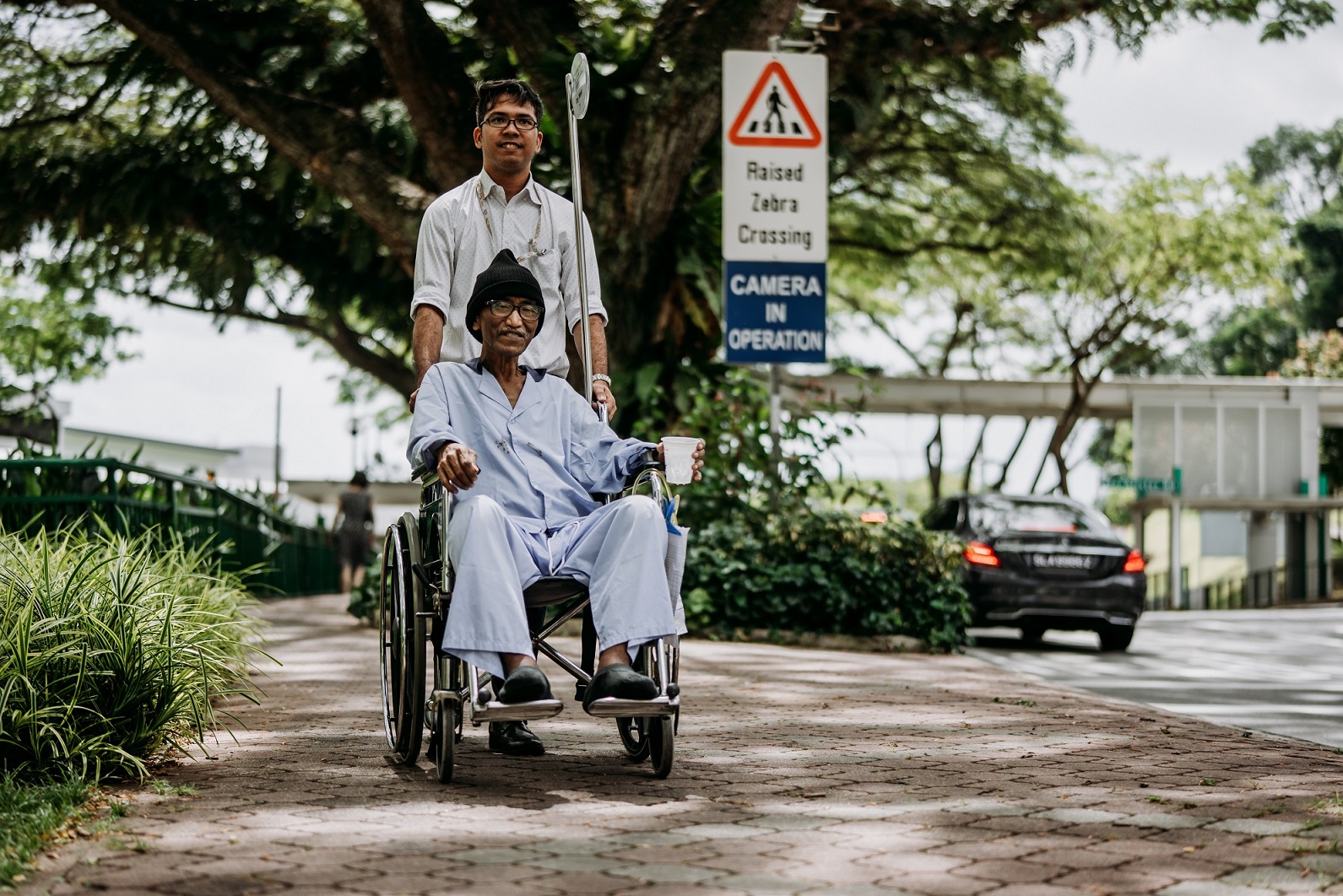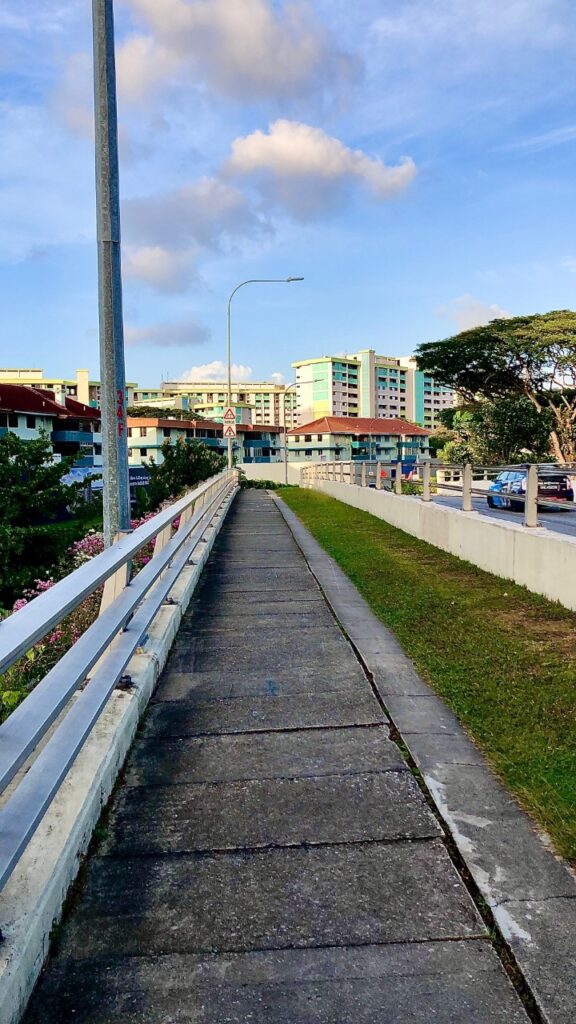
Close


My Journey
As we approach World Social Work Day, I can’t help but reflect on my own journey in Social Work. It was towards the end of my National Service in the Police Coast Guard division that I began to think about the idea of doing something that could help people. This stirring was probably brought about by the real-life cases I had witnessed. After National Service, I began work at an IT Training Centre and it was during this time that I commenced my part-time degree in Social Work. Balancing work and studies was definitely tough but I was inspired by my classmates, who were older and had to manage more commitments.
A younger me during my time in the Police Coast Guard division.
As a social worker, our job is multi-faceted. We often have to work with various systems and stakeholders to help improve the lives of our clients. In HCA, that would mean working with our multidisciplinary team of nurses, doctors and other allied health professionals to support our patients and their families. At the same time, we may need to collaborate with the hospitals or other external institutions to help our patients and their families get the care that they need.
Rush Hour
Our usual day starts with a morning roll call with the team, to update each other about various patients’ situations and to highlight any matters that need attention. After roll call, we will quickly catch up on any administrative matters, and contact patients and their families to arrange for visits, before heading out for our first visit of the day.
 Sights and sounds as I go about my day.
Sights and sounds as I go about my day.
On average, we make about four home visits in a day and we try to get back to the office before the end of the day, to complete our case recordings and prepare for the next day.
I still struggle to finish my case recordings before the end of the work day, and often have to bring them home to complete them. Timely case recordings greatly help our on-call colleagues – those who man our after-hours hotline – who have to refer to our case recordings to understand the patient’s situation. These are our unsung heroes – the doctors and nurses taking on night and weekend on-call duties.
Catching the sunset on my way home.
After working in home care, I have come to appreciate the simple luxuries that I used to take for granted: a good pair of shoes, because we clock almost 10,000 steps in a day; a sturdy backpack as I carry my heavy laptop around all day, and having enjoyable company because we often go out alone. Another challenge that I had to adapt to is looking for food, because we are constantly on the move. Eateries may not always be nearby – there was once when I was in Punggol, I could not find any food options as the estate was so new, and only had lunch at 3pm when I finally spotted an eatery near a patient’s home.
The Toughest Challenges
Looking back, I think the toughest time was the early stages of the COVID-19 pandemic, during the circuit breaker and before the vaccines were rolled out. Everything was very scary; we did not know much about the virus, and the psychosocial issues surrounding our patients and their families were complicated by the COVID-19 situation.
For instance, many patients who lived separately from their families found it difficult to get support as people were not allowed to leave their homes. Patients and their caregivers also felt socially disconnected, due to not being able to have visitors. Furthermore, many patients refused to go to the hospital out of fear of dying alone, due to the strict policies on visiting at that time.
Lunch is often a hurried affair on the go, especially during the COVID-19 period, when dining in was not allowed.
Many staff also took steps to isolate themselves from their loved ones, so as not to unintentionally infect them.
What Matters the Most
However, every time I’m faced with challenges, I’m reminded of one of our patients, Mr Philip*. He always reminded me that as long as there is breath, there is hope. He was a musician and music always kept him going; every time I visited him, he would be playing his guitar and singing. As time went by, Mr Philip began to deteriorate, but he insisted on staying home even though he had no caregiver.
Mr Philip’s beloved guitar and guitar pick.
He would insist that he was fine even though he was barely able to perform his daily activities. Even after much coaxing from the team, Mr Philip still refused. He shared how he would not have the freedom to play his guitar or smoke his cigarettes whenever he wanted. Eventually, we made a deal with him, that we would have to admit him to an institution if he was not able to care for himself anymore, or if we found him confused and unable to make decisions. It was through this experience that I learnt not to look at what the matter is, but what matters the most.
What I have learnt is that the journey is the destination, because the journey does not end when we reach a milestone – it continues beyond the daily events and the major happenings, for the world does not stop turning and every moment that we experience is a moment worth experiencing.
After five years in HCA, I still believe it is a blessing to serve our patients. Through our shared journey, we get to learn so much from our patients – our greatest teachers.
For the real social work journey is the journey inwards, to learn about ourselves – what we value in our lives and how we make meaning of events in our journey. Only through the path can we see who we are truly called to be.
*not his real name
Delish Dining Deals
Calling all foodies! From now till 30 April, enjoy delectable Dim Sum and Peking Duck at a promotional price, with a minimum donation to HCA. Gather your friends and family, and dine for good together! For more information, click here.